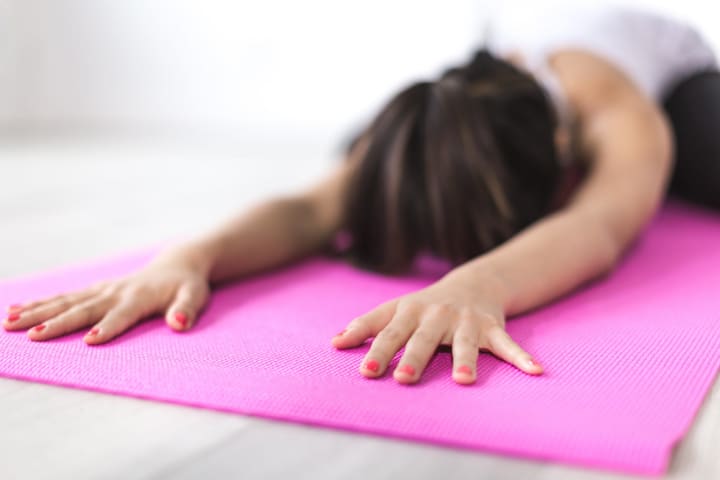
Before I went to high school, everyone was telling me that it would be the best four years of my life. Those four years were years of growth, fun, and frustrations. However, they came to a close too soon. By grade 12, I was ready for a change of pace. I welcomed the idea of going to a different environment where I would be more independent. Yet when I went to university the change hit me hard; I had to deal with things I had never experienced before. I was affected emotionally, spiritually, physically and mentally. As a student heading into my second year of university, I have reflected on the things I wish I had done in high school. At the time it seemed as though I was perpetually busy; but now, experiencing the demands of university, I see how much free time I really had if I had been more efficient.
Here are 12 things I believe all people should learn before they go to university (or even if you don't, it sure wouldn't hurt to do!):
1. Learn how to organize your time
There never seems to be enough time to do the things we want to do. We juggle multiple things at a time—dance classes, after-school clubs, sports, homework—and some of them are not even in our control. Still, it is extremely vital we learn how to organize our time. In high school, studying last minute for a test was plausible. In university, it's a death sentence. With assignments and looming deadlines, it is easy to procrastinate and set things aside but these are deadly habits that destroy your productivity. Use high school as your test drive, find things that work for you. Maybe that means using an agenda, calendar or planner. Perhaps you prefer keeping yourselves organized by using your cell phone. Figure out what works for you and stick to it.
2. Read these books
Now don't worry, I'm not trying to add to your already hectic workload but these are some suggestions for both the bookworm and the casual reader.
- "How to Become a Straight-A Student," by Cal Newport - This is a fun and informative read. It is written as though you were having a casual conversation with your sassy English teacher. It is practical and to the point. I highly recommend this.
- "The Power of Habit," by Charles Duhigg - Aristotle is attributed to have said, "We are what we repeatedly do. Excellence, then, is not an act, but a habit." The book hammers in the reality that habits are truly the cornerstone of our existence. Developing bad habits can debilitate us and make us slaves to our feedback loops while good habits can propel us into success.

Photo by Pexels
3. Learn how to actually study.
When I was in high school, the bulk of my marks came from a section called "knowledge and understanding." In other words, could I regurgitate the information my teacher had been throwing at me? Studying was then simply memorizing facts and understanding vague ideas. You could study with your music blasting, you could be checking your phone constantly, or even study the day before a test and probably pass. This won't fly at university. At university, application is what truly counts. That means that sometimes you will be given a question you weren't necessarily taught how to do. How can we do that?! The key isn't necessarily more studying but more efficient studying. Work smart, not hard. Practice different types of questions, ask for help when you need it and keep your learning focused. The most effective studying tips are found in How to Become a Straight-A Student by Cal Newport but some key tips are:
- Practice whenever you get a chance
- Set aside one hour chunks of uninterrupted study followed by short breaks
Changing your study habits won't be easy but it is necessary to adjust how we take in information so that we will be more proficient learners.
4. Learn how to cope with stress.
Everyone has different mechanisms to deal with anxiety and being overwhelmed; some are healthy and some are not sustainable in the long run. Try to find ways to unwind. It is important to find a place where you can vent your frustrations; otherwise, you are headed towards a nasty breakdown (or series of breakdowns, as I experienced). Having some friends to chat with, breathing exercises, or writing in a journal—try to identify when you feel stressed and see what can help relieve this pressure. Always remember that there is no shame in consulting professional help. Whether that means calling an anonymous mental health hotline or talking to a counselor, these resources are available to help you and you should take advantage of them.

Photo by Pexels
5. Eat
It seems silly to tell teenagers to eat but good eating habits are crucial, especially if you plan on living on your own. Many teens skip breakfast; they complain that they cannot eat so early in the morning. Yet the cliche stands true—breakfast is the most important meal of the day. In fact, Psychology Today asserts that eating breakfast can help prevent obesity and diabetes. Not only that but skipping meals is a habit you do not want to develop. You should organize your time so that you can properly nourish yourself—this is a key life skill. Oh yea and while you're at it, drink water.
6. Get some sleep.
Most young people today seem to be competing to see how little sleep they can survive on. Sometimes we sleep late out of necessity but most of us are just scrolling through social media, texting or watching videos. Your parents probably already tell you, but like, stop it dude. Your body needs to rest from a day of anxieties and physical exertion. Also, you can't retain information if you are only getting five hours of sleep every night. In university, time for sleep is a precious commodity. Learn to appreciate sleep, no matter how obnoxious it is to hear your friends boast that they went to sleep at 4 AM yesterday.
7. Put Away That Phone
Again I run the risk of sounding like your parent, but you may be legitimately addicted to your phone. Try to limit how often you use your phone and I promise you, the world will not explode into bits. I found myself in an unhealthy relationship with my phone. It was the first and last thing I checked in the day. Throughout the day I would mindlessly turn it on and off and when I was studying I found myself itching to use it. If you wish to be successful in university (and better in high school), I suggest developing a healthy relationship with technology. Technology should be a tool, not a crutch.
8. Exercise
Whether this means doing squats in your basement, playing a sport, or trying out a gym, exercise is important to relieve stress and keep you healthy. If you can set aside just 30 minutes to get your blood moving, your body and mind will thank you.
9. Do volunteer work.
If you are a high school student you probably have to do community service anyways. Volunteer work looks good on university and job applications but it is even more invaluable for the experience you gain. I believe this is important so that you can get a taste of the real world, interact with different types of people and get a new perspective. Two volunteer jobs I had which really changed my perspective was reading to kids at a library and helping out at my local hospital. Working with children and elderly people opened my eyes to see different people's needs. It has also influenced how I interact with people on a day to day basis.
10. Get a part-time job.
Working part-time is a great way to start saving a bit of money for all the expenses that come with being a university student. Seeing in real life how long it takes for money to be accumulated and how easily it can all disappear should teach us to be prudent with our income. Part-time jobs get your foot in the workplace. You may be working in something completely unrelated to what you want to do in the future but a tiny bit of something is better than a whole lot of nothing.
11. Travel
Some people take a year off, some people only dedicate a few days. Regardless of how long you plan on doing it, traveling (or at least a decent, fun change of environment) is a worthwhile investment. This is especially true for people going into university. In university, your main priority should be your studies. This doesn't mean you cannot have fun but your options are limited to the constraints of your scholarly obligations. Whether going to a tropic beach or hiking in your local conservation area, take the time to appreciate your surroundings and spend time with the people you love.

Photo by Pexels
12. Find out if university is the right place for you (it may not be, and that's ok!).
This entire article has been dedicated to people planning on pursuing a post-secondary education but most of these suggestions are universal. The reality is that not everybody is made for university life and sometimes you are better off going into another path that will give you more satisfaction in the long run. Before going to university—find out if you really should be going there. There are different options available, there is no shame in being true to yourself.
References
“Is Breakfast the Most Important Meal?” Psychology Today, Sussex Publishers.






Comments
There are no comments for this story
Be the first to respond and start the conversation.